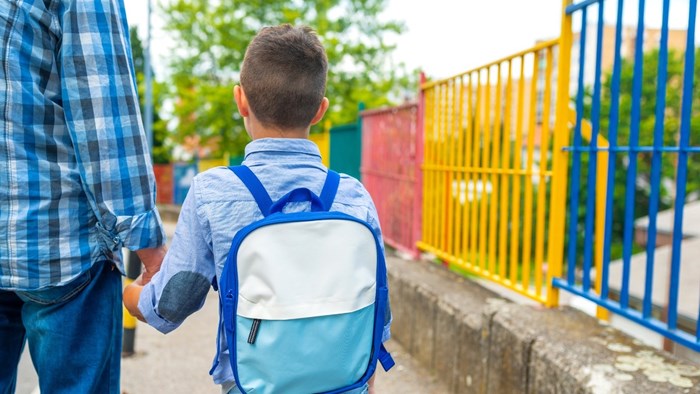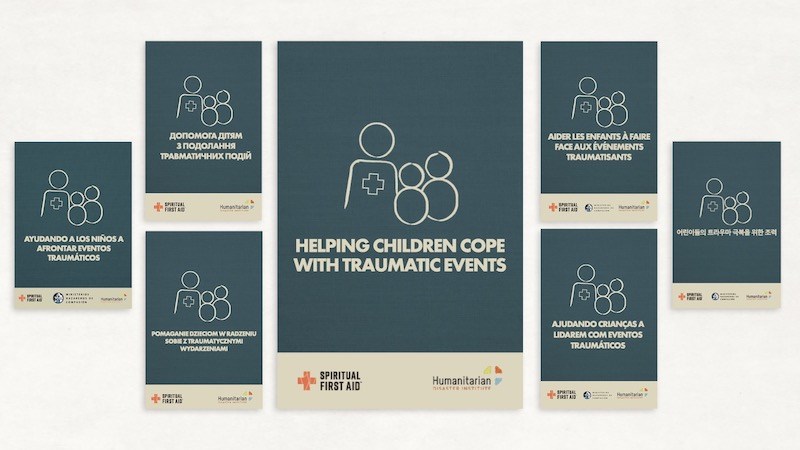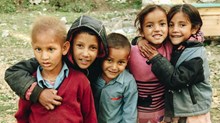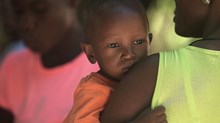How to Talk to Your Kids About the Nashville Elementary School Shooting

Yet another tragic and senseless school shooting has occurred; this time, at an elementary school in Nashville. Three children and three adults were killed and countless others were left grief-stricken and in shock. If you’re a parent, caregiver, or teacher, you likely started thinking about how the news may have impacted your children. You may feel lost for words and unsure how to talk with your kids or provide support. If they bring it up, you may feel tempted to avoid talking to your children about what happened. However, between the news, social media, and other kids, your kids are probably more aware of what’s happening than you realize. Being thoughtful about how to approach such conversations shows your children more love than avoiding the topic does.
Prepare Yourself
Before you share with your kids, give yourself the time you need to notice and process your feelings, so that you can be fully present to your children’s needs and emotions. Take steps to make sure other adults are meeting your needs—don’t put that burden on your children. Children are like sponges and absorb their parents’ reactions, words, and energy. Delivering difficult news is never easy, and it’s natural to feel anxious. Part of the reason for your anxiety is that you have your feelings about what you (or your family) may be facing. You may also be worried about saying or doing the wrong thing. Remind yourself that it’s okay to struggle and make mistakes. but also remember that you are there for your children, not the other way around.
Provide Reassurance
Sometimes children may feel responsible for events that are entirely beyond their control. For example, when it’s not clear that there’s a plan in place to face the crisis, children may, in some way, feel they must bear the weight of that responsibility. Relieve your kids of that potential burden by letting them know the crisis is not their fault. When you reassure children that adults are managing the situation, you permit them to be children.
Use Age-Appropriate Language
Recognize your child’s developmental ability to understand the situation. When your kids ask questions, answer them to the best of your ability, using appropriate words and concepts for their developmental stages. Likewise, be sure to create space for questions your children might have. If you fear inviting questions, that’s okay, since you likely have more questions than answers. Be honest if you don’t know what to say, by telling your kids you don’t know the answer. When possible, assure them that you’ll look into it and get back to them. (But if you make this promise, follow through.) Be authentic with your children, remembering to talk to your kids as children and not as adults.
Try to Maintain Routines
Crises disrupt daily life. Taking small steps to help students regain normalcy will equip them to cope more effectively. This does not mean ignoring what has occurred, but instead trying to maintain structure in our interactions. Familiar faces, schedules, and places can go a long way in helping children. There’s something soothing and healing in routine.
Encourage Faith
Helping our children hold onto faith will cultivate peace, meaning, and purpose during this difficult time. Let them know it’s common to struggle with questions of faith during crises. Remind them that God is with us even in times of trouble. Some ways to help them draw upon their faith include encouraging your children to read scripture, stay involved in church life, and discuss spiritual topics with others.
Pray Together—Then Act
First, by praying together, you’re modeling for your children what it looks like to put your faith in God and trust Him above all else. Praying together helps you and your children access a wellspring of hope. Offering our prayers reminds children of God’s love and the truth that we are not alone in our suffering.
Second, model what it means to love your neighbor by taking action. This might mean checking on a friend or neighbor who has lost a loved one to an act of mass violence, to see how they are doing. It might mean donating to a trusted organization that’s helping those impacted by the shooting in Nashville. Another way to get involved is to join in advocacy or the organized efforts of others who are trying to prevent such horrific acts from occurring in the first place.
Traumatic events like this week’s shooting can leave children feeling frightened, confused, and insecure. Whether a child has personally experienced trauma, seen the event on television, or heard it discussed by peers or adults, it’s important for parents to be informed and ready to help if reactions to stress begin to occur.
We pray this article, and the resource below, will equip you to have tough conversations and to care well for your kids (and yourself).
Download our free e-book—currently available in seven languages—which can help you as a parent (or family members, teachers, clergy, and volunteers) recognize kids’ stress reactions and listen to and support children after acts of violence.
Jamie Aten, Ph.D. and Kent Annan, M.Div. co-direct the Humanitarian Disaster Institute at Wheaton College and are also the co-founders of Spiritual First Aid.
The Better Samaritan is a part of CT's
Blog Forum. Support the work of CT.
Subscribe and get one year free.
The views of the blogger do not necessarily reflect those of Christianity Today.























